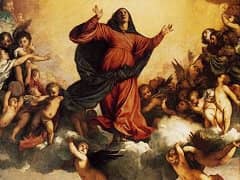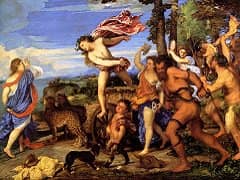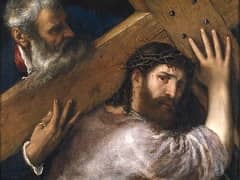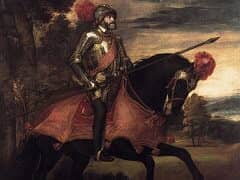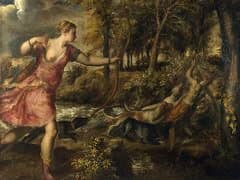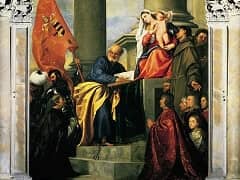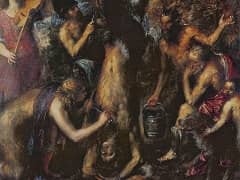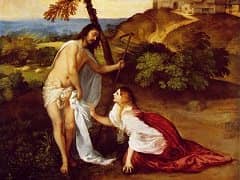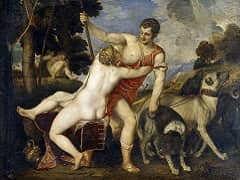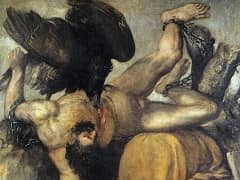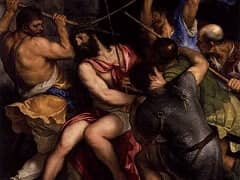Sisyphus, 1548 by Titian

Sisyphus, king of Corinth, climbs the mountain carrying a boulder, as he was condemned to do for eternity by Pluto, god of the underworld. Sisyphus had very cleverly tricked the gods numerous times, and even managed to escape death, itself. In order to prevent him from escaping after his death, Pluto obliged him to carry a boulder to the top of a mountain, but it always fell down just before he reached the top.
"Creation" or art is another way to express human experiences, wrote Albert Camus, in his Myth of Sisyphus (1942), a philosophical essay examining the meaning of life. The gods saw no worse punishment for Sisyphus' mischief than sentencing him to toil for no reason toward nothing, a metaphor for the human condition. Life is absurd and without meaning. In this "unintelligible and limited universe," humans have an "irrational and... wild longing for clarity." "If the world were clear, art would not exist." And, although art is not intended to explain or solve any of life's problems, it is how humans, who still possess freedom, intelligence, desire to revolt, and passion for the beauty of nature, can remain conscious of their desire to live and strive for meaning and purpose. In the philosopher's estimation, works of art are evidence of human dignity.
Titian's finest works are mythologic narratives, which he likened to visual poetry. These paintings explored human frailties with empathy and lyricism.

